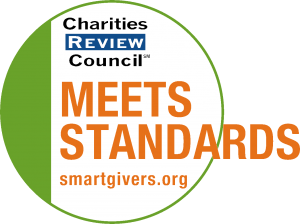Impact and Programs
Accomplishments
In your final report, all formatting will be removed (including line breaks). Do not use special characters such as bullet points.
In 2023, The Link served 2,166 youth and young families experiencing homelessness, sexual exploitation, and/or involvement in the juvenile justice or child welfare systems. Across our three divisions, The Link stably housed over 290 youth and young families experiencing homelessness, helped 561 middle and high school students reengage with their education and provided access to safe housing and supportive services for 117 young sex trafficking victims within our Safe Harbor programming.
Due to the demonstrated success of our programs, The Link secured additional funding to expand our Supportive Housing Programs, becoming the largest provider of housing for youth and young families in Minnesota. The Link now offers over 270 units of stable housing for youth and young families experiencing homelessness. To comprehensively meet the needs of the youth we serve, The Link continues to adapt and enhance our supportive services based on current gaps in community support and youth feedback. For example, due to the increased severity of mental health needs and barriers for the youth we serve, The Link launched a youth-led mental health program, “FOCUS” (Finding Our Care Under Support) that provides access to individual and group therapy services for youth with the highest needs across our programs. The Link also further invested in our leadership and life skills programming for youth by formalizing a Youth Engagement Program and hiring a Youth Engagement Program Manager to oversee and strengthen our youth leadership work. Through the Youth Engagement Program, 50+ program participants can participate in paid professional and leadership opportunities and provide strategic oversight of The Link’s programs.
Current Goals
In 2024, The Link aims to serve over 2,000 youth and young families, providing crisis intervention, homelessness prevention, emergency shelter, housing, and supportive services to youth and young families experiencing homelessness, sex trafficking, and/or involvement in the juvenile justice or child welfare systems. Across all our programs, The Link works to connect youth to basic needs such as shelter and housing, while also empowering them with resources to ensure long-term success and stability including mental, chemical, and physical health care services, support re-engaging with their education, career and leadership development opportunities, tenants' rights education, case management and mentorship, and more. Through this comprehensive approach, The Link strives to empower youth with the relationships, community care, and resources needed to maintain long-term stability while in our programs and beyond.
The Link is committed to providing quality case management, supportive housing, and other individualized services that make a quantitative and qualitative difference in the lives of young people. To that end, we measure multiple outcomes in each program. Outcome targets include: 75% of youth will access secure housing when they exit a Supportive Housing program, 70% of youth in Supportive Housing will maintain or increase their incomes enough to meet basic needs, 80% of youth in Safe Harbor will decrease harmful behaviors (criminal activity, sexual exploitation, drug use, etc.), and 70% of youth in POWER will have no new offenses within 12 months of program start date, and much more.
Community or Constituency Served
Every year, The Link serves 2,000+ youth and young families ages 10-24 who are experiencing homelessness, sex trafficking, and/or involvement in the juvenile justice or child welfare systems. Most young people served by The Link come from households experiencing poverty, food insecurity, housing instability, employment and transportation barriers, mental health struggles, and more. Due to intersecting forms of oppression that increase vulnerability of marginalized youth, the majority of the youth we serve identify as BIPOC, with 85% of the youth served by The Link identifying as BIPOC in 2023, facing high barriers to stability, economic opportunity, and healthy social-emotional development.
Geographic Area Served
7 county Twin Cities Metro
